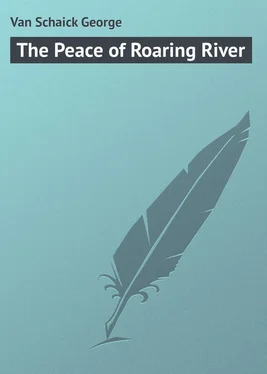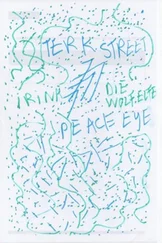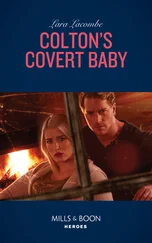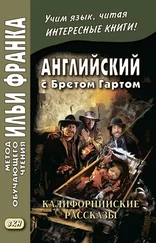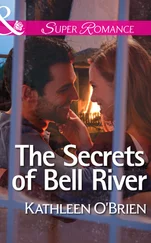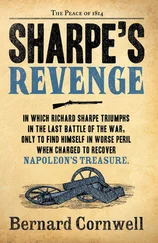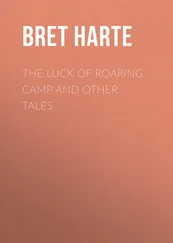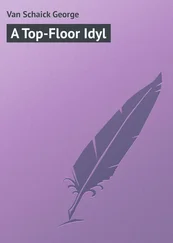Schaick Van - The Peace of Roaring River
Здесь есть возможность читать онлайн «Schaick Van - The Peace of Roaring River» — ознакомительный отрывок электронной книги совершенно бесплатно, а после прочтения отрывка купить полную версию. В некоторых случаях можно слушать аудио, скачать через торрент в формате fb2 и присутствует краткое содержание. Жанр: foreign_prose, на английском языке. Описание произведения, (предисловие) а так же отзывы посетителей доступны на портале библиотеки ЛибКат.
- Название:The Peace of Roaring River
- Автор:
- Жанр:
- Год:неизвестен
- ISBN:нет данных
- Рейтинг книги:5 / 5. Голосов: 1
-
Избранное:Добавить в избранное
- Отзывы:
-
Ваша оценка:
- 100
- 1
- 2
- 3
- 4
- 5
The Peace of Roaring River: краткое содержание, описание и аннотация
Предлагаем к чтению аннотацию, описание, краткое содержание или предисловие (зависит от того, что написал сам автор книги «The Peace of Roaring River»). Если вы не нашли необходимую информацию о книге — напишите в комментариях, мы постараемся отыскать её.
The Peace of Roaring River — читать онлайн ознакомительный отрывок
Ниже представлен текст книги, разбитый по страницам. Система сохранения места последней прочитанной страницы, позволяет с удобством читать онлайн бесплатно книгу «The Peace of Roaring River», без необходимости каждый раз заново искать на чём Вы остановились. Поставьте закладку, и сможете в любой момент перейти на страницу, на которой закончили чтение.
Интервал:
Закладка:
Nearly another week went by before the second answer arrived. It again urged her to come. It spoke of the wonderful place Carcajou was, of the marvel that was Roaring Falls, of the greatness of the woodlands of Ontario. Indeed, for one of her limited attainments, Sophy’s letter was a remarkable effort. This time the missive was signed in printed letters: HUGO ENNIS. This seemed queer. But some men signed in very puzzling fashion and this one had used this method, in all likelihood, in order that she might be sure to get the name right. And it was a pleasant-sounding name, rather manly and attractive.
The letter did not seem to require another answer. Madge stuffed it under her pillow and spent a restless night. On the next day her head was in a whirl of uncertainty. She went as far as the Grand Central Station and inquired about the price of a ticket to Carcajou. The man had to look for some time before he could give her the information. It was very expensive. The few dollars in her pocket were utterly inadequate to such a journey, and she returned home in despair.
On the Monday morning, at the usual hour, she started for the factory. She was about to take the car when she turned back and made her way to her room again. Her mind was made up. She would go!
She opened a tiny trunk she had brought with her from her country home and searched it, swiftly, hurriedly. She was going. It would not do to hesitate. It was a chance. She must take it!
She pulled out a little pocketbook and opened it swiftly. Within it was a diamond ring. It had been given to her mother by her father, in times of prosperity, as an engagement ring. And she had kept it through all her hardships, vaguely feeling that a day might come when it might save her life. She had gone very hungry, many a time, with that gaud in her possession. She had felt that she could not part with it, that it was something that had been a part of her own dear mother, a keepsake that must be treasured to the very last. And now the moment had come. She placed the little purse in her muff, clenched her hand tightly upon it, and went out again into the street.
She looked out upon the thoroughfare in a new, impersonal way. She felt as if now she were only passing through the slushy streets on her way to new lands. From the tracks of the Elevated Road dripped great drops of turbid water. The sky was leaden and an easterly wind, in spite of the thaw, brought the chill humidity that is more penetrating than colder dry frost.
She hastened along the sidewalk flooded with the icy grime of the last snowfall. It went through the thin soles of her worn boots. Once she shivered in a way that was suggestive of threatened illness and further resort to the great hospital. Before crossing the avenue she was compelled to halt, as the great circular brooms of a monstrous sweeper shot forth streams of brown water and melting snow. Then she went on, casting glances at the windows of small stores, and finally stopped before a little shop, dark and uninviting, whose soiled glass front revealed odds and ends of old jewelry, watches, optical goods and bric-a-brac that had a sordid aspect. She had long ago noticed the ancient sign disposed behind the panes. It bore the words:
“We buy Old Gold and Jewelry”
For a moment only she hesitated. Her breath came and went faster as if a sudden pain had shot through her breast. But at once she entered the place. From the back of the store a grubby, bearded, unclean old man wearing a black skullcap looked at her keenly over the edge of his spectacles.
“I–I want to sell a diamond,” she told him, uneasily.
He stared at her again, studying her poor garb, noticing the gloveless hands, appraising the worn garments she wore. He was rubbing thin long-fingered hands together and shaking his head, in slow assent.
“We have to be very careful,” his voice quavered. “We have to know the people.”
“Then I’ll go, of course,” she answered swiftly, “because you don’t know me.”
The atmosphere of the place was inexpressibly distasteful to her and the old man’s manner was sneaking and suspicious. She felt that he suspected her of being a thief. Her shaking hand was already on the doorknob when he called her back, hurrying towards her.
“What’s your hurry? Come back!” he called to her. “Of course I can’t take risks. There’s cases when the goods ain’t come by honest. But you look all right. Anyway ’t ain’t no trouble to look over the stuff. Let me see what you’ve got. There ain’t another place in New York where they pay such good prices.”
She returned, hesitatingly, and handed to him a small worn case that had once been covered with red morocco. He opened it, taking out the ring and moving nearer the window, where he examined it carefully.
“Yes. It’s a diamond all right,” he admitted, paternally, as if he thus conferred a great favor upon her. “But of course it’s very old and the mounting was done years and years ago, and it’s worn awful thin. Maybe a couple of dollars worth of gold, that’s all.”
“But the stone?” she asked, anxiously.
“One moment, just a moment, I’m looking at it,” he replied, screwing a magnifying glass in the socket of one of his eyes. “Diamonds are awful hard to sell, nowadays–very hard, but let me look some more.”
He was turning the thing around, estimating the depth of the gem and studying the method of its cutting.
“Very old,” he told her again. “They don’t cut diamonds that way now.”
“It belonged to my mother,” she said.
“Of course, of course,” he quavered, repellently, so that her cheeks began to feel hot again. She was deeply hurt by his tone of suspicion. The sacrifice was bad enough–the implication was unbearable.
“I don’t think you want it,” she said, coldly. “Give it back to me. I can perhaps do better at a regular pawnshop.”
But he detained her again, becoming smooth and oily. He first offered her fifty dollars. She truthfully asserted that her father had paid a couple of hundred for it. After long bargaining and haggling he finally agreed to give her eighty-five dollars and, worn out, the girl accepted. She was going out of the shop, with the money, when she stopped again.
“It seems to me that I used to see pistols, or were they revolvers, in your show window,” she said.
He lifted up his hands in alarm.
“Pistols! revolvers! Don’t you know there’s the Sullivan law now? We ain’t allowed to sell ’em–and you ain’t allowed to buy ’em without a license–a license from the police.”
“Oh! That’s a pity,” said Madge. “I’m going away from New York and I thought it might be a good idea to have one with me.”
The old man looked keenly at her again, scratching one ear with unkempt nails. Finally he drew her back of a counter, placing a finger to his lips.
“I’m taking chances,” he whispered. “I’m doing it to oblige. If ye tell any one you got it here I’ll say you never did. My word’s as good as yours.”
“I tell you I’m going away,” she repeated. “I–I’m never coming to this city again–never as long as I live. But I want to take it with me.”
When she finally went out she carried a cheap little weapon worth perhaps four dollars, and a box of cartridges, for which she paid him ten of the dollars he had handed out to her. It was with a sense of inexpressible relief that she found herself again on the avenue, in spite of the drizzle that was coming down. The air seemed purer after her stay in the uninviting place. Its atmosphere as well as the old man’s ways had made her feel as if she had been engaged in a very illicit transaction. She met a policeman who was swinging his club, and the man gave her an instant of carking fear. But he paid not the slightest heed to her and she went on, breathing more freely. It was as if the great dark pall of clouds hanging over the city was being torn asunder. At any rate the world seemed to be a little brighter.
Читать дальшеИнтервал:
Закладка:
Похожие книги на «The Peace of Roaring River»
Представляем Вашему вниманию похожие книги на «The Peace of Roaring River» списком для выбора. Мы отобрали схожую по названию и смыслу литературу в надежде предоставить читателям больше вариантов отыскать новые, интересные, ещё непрочитанные произведения.
Обсуждение, отзывы о книге «The Peace of Roaring River» и просто собственные мнения читателей. Оставьте ваши комментарии, напишите, что Вы думаете о произведении, его смысле или главных героях. Укажите что конкретно понравилось, а что нет, и почему Вы так считаете.
